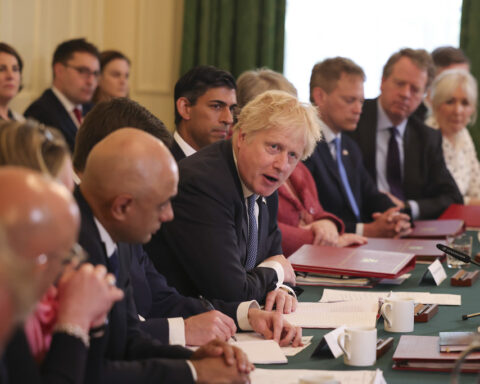The UK Government’s commitment to Gibraltar and its Overseas Territories amid ongoing scrutiny from the European Union (EU) is underscored by its recent response to the European Scrutiny Committee’s report. In a comprehensive statement released as part of the government’s reply to the Committee’s assessment of the UK’s Mission to the EU, several key points were emphasized, reflecting the intricate dynamics surrounding Gibraltar and the Overseas Territories.
At the heart of the matter is the UK’s resolute intention to solidify a UK-EU treaty on Gibraltar. The government asserts its dedication to expeditiously reaching an agreement while drawing a clear line in the sand – no treaty will be accepted if it compromises the sovereignty of the territory. This unwavering stance signals the government’s determination to protect the interests and autonomy of Gibraltar in any negotiations with the EU.
The backdrop to this commitment includes recent statements from Spain’s Foreign Minister, José Manuel Albares, indicating that the UK and Spanish Governments are nearing a consensus on Gibraltar’s status. Simultaneously, Gibraltar’s Chief Minister, Fabian Picardo, has expressed optimism in a New Year’s message, pointing to a resolution on the question of Gibraltar’s future relationship with the EU anticipated in the first half of 2024. These developments highlight the active diplomatic engagement between the concerned parties and the potential for a breakthrough in the ongoing negotiations.
Despite the optimism surrounding Gibraltar, the issue of the Overseas Territories remains a complex one. The European Scrutiny Committee had recommended that the government persist in its efforts to secure coverage for the Overseas Territories in a manner similar to the UK-EU Trade and Cooperation Agreement (TCA). However, the government’s response does not explicitly commit to this course of action, leaving a degree of uncertainty regarding the future trade and cooperation agreements affecting these territories.
Nevertheless, the government acknowledges the Overseas Territories as integral components of the broader UK family. Describing them as “a much-valued part of the whole UK family,” the government outlines its commitment to utilizing diplomatic resources to facilitate the territories’ engagement with the EU. While the specific approach may not be laid out in the response, the commitment to supporting Overseas Territory Governments in accessing EU markets is emphasized.
One notable example of this commitment is the government’s support for the opening of local offices in Brussels for certain Overseas Territories, including Bermuda and Gibraltar. These offices serve as essential hubs for engaging with EU institutions, enabling direct communication and representation. Such initiatives underscore the government’s proactive efforts to ensure that the unique needs and interests of the Overseas Territories are considered in the broader context of UK-EU relations.
As discussions on the future relationship between the UK, Gibraltar, and the Overseas Territories continue, the government’s comprehensive response to the European Scrutiny Committee highlights the intricacies of these diplomatic engagements. Balancing the pursuit of favorable agreements for Gibraltar with the broader considerations for the Overseas Territories, the UK Government navigates a complex terrain of negotiations, emphasizing its commitment to safeguarding the interests and autonomy of these territories within the evolving landscape of UK-EU relations.



